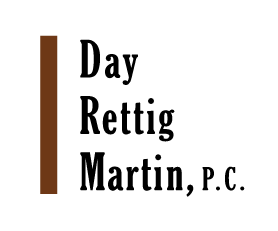Earlier this week, Day Rettig Martin, P.C. was the target of a sophisticated fraud scam that attempted to swindle over $150,000 from the firm. A man identifying himself as Charles Gomez contacted our firm through our website seeking legal services. Upon initial contact, he represented that his former employer, Cardinal Health, had wrongfully terminated him in retaliation for reporting wrongful conduct. He further represented that the employer had entered into a severance agreement with him, but had failed to make payment. Our firm assigned an attorney to the matter, and the attorney corresponded with Mr. Gomez and a person identified as a representative of Cardinal Health. The “representative” conceded that the funds were owed, and a few days later the firm received a Fed Ex package with a cashier’s check for the amount that was claimed to be owed pursuant to the written Severance Agreement that Mr. Gomez had provided to us. Immediately after confirming receipt of the check, Mr. Gomez requested the money be wire transferred to a bank account in Mexico. The immediate turnaround of the funds was outside of the firm’s procedures and the attorneys contacted the issuing credit union located in Texas to determine the status of the cashier’s check. The credit union confirmed our suspicions that it had not issued the cashier’s check and would not honor it.
Our firm contacted various federal agencies to report the fraud scam and notified representatives of Cardinal Health. We learned from Cardinal Health that this scam using its name has been running for nearly 2 years. Cardinal Health stated that it is aware of 45 instances of this scam perpetrated nationwide.
This scam was different from other publicized scams in that it did not have the overt “red flags.” Many of the common red flags such as grammar and spelling issues in emails, emails being sent at odd times of the night and morning, and avoidance of providing personal information were absent from our correspondence in this instance. The severance document had the appearance of an actual confidential document, and the e-mail purported to have been sent by the representative of Cardinal Health initially appeared legitimate. Finally, the cashier’s check appeared to be legitimate and the credit union was a legitimate credit union in San Antonio, Texas.
Upon review of the files, we noticed that although the email correspondence appeared to originate from Cardinal Health, the actual domain was “cardinalheathinc.” The Fed Ex package’s “sent address” matched the West Des Moines, Iowa office of Cardinal Health; however, on future investigation it was determined that the packet was sent from Boston. We were able to confirm listings for both the Cardinal Health representative and the purported “client.” Their information was available online.
Our experience shows that law firms are not immune from the efforts of scammers. It is important to remain vigilant for scams, especially in this digital age where it is common for firms to never meet out of state clients. We suggest that everyone, including law firms, remain vigilant. Importantly, while law firms want to assist their clients and turnover funds in a timely manner, they need to verify that they have received “collected funds” prior to disbursing any payment. This is our firm’s first experience receiving what turned out to be a fraudulent “cashier’s check.” We normally consider cashier’s checks to be “collected funds.” Based on this experience we will verify all cashier’s checks in the future as a matter of course.


 Visit Our
Visit Our Contact Us
Contact Us